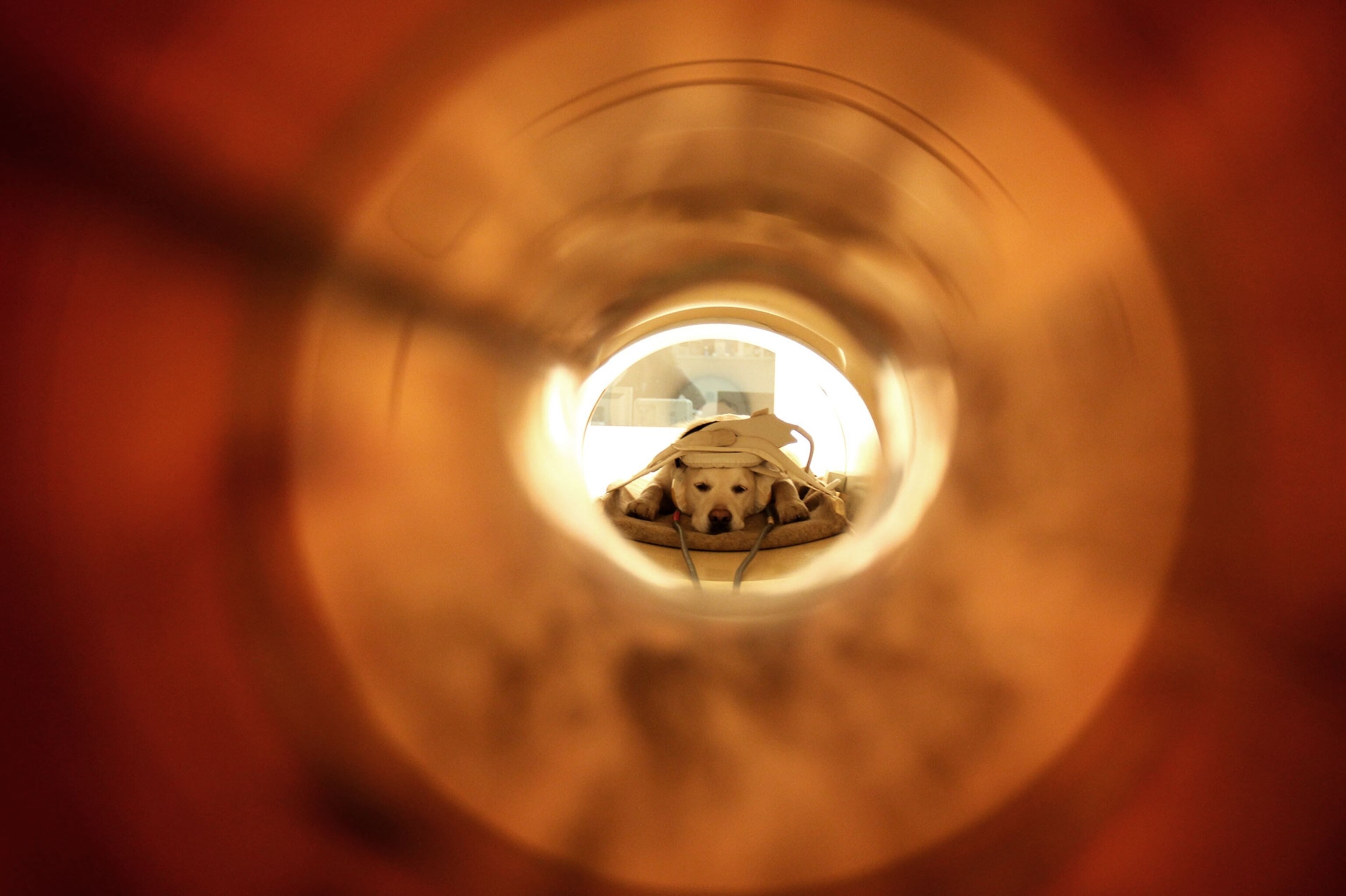
Your Dog Knows Exactly What You’re Saying
Until now, scientists didn't know that the canines understand both our words and the tone in which we say them.
It doesn't take a scientific study for dog owners to believe that their pets know what they're saying. (We cat owners are a little less certain.)
But it’s not always clear exactly what Fido is paying attention to.
When we say “Good dog!” dogs hear both the words we say and how we say them, new brain scans show. For people, both the word and intonation are important, but no one knew—until now—whether that was also the case for dogs. (See "Dogs Are Even More Like Us Than We Thought.")
In a study published August 29 in Science, scientists found the canine brain also processes the information in a similar way as humans.
“I’m quite excited by this finding. It’s really exciting to see such close correspondence between brain activity in humans and dogs,” said Chris Petkov, a neuropsychologist at the U.K.'s University of Newcastle who was not involved in the study.
Dog Brains Are a Lot Like Ours
Study leader and dog lover Attila Andics started studying canines as a way to understand how the mammalian brain processes language.
The first step was not an easy one: Training dogs to remain absolutely still in a functional magnetic resonance imaging (fMRI) scanner. It took several months for dog trainers to work their magic on 13 pet dogs that live in Hungary, including six border collies, four golden retrievers, one German shepherd, and one Chinese crested.
“The hardest part was getting them to understand that they needed to lie absolutely still. Once they realized that we meant completely still, it worked out great,” says Andics, an ethologist at Eötvös Loránd University in Budapest, Hungary. (See "Can Dogs Feel Our Emotions? Yawn Study Suggests Yes.")

In 2014, Andics and colleagues showed how the brains of the same 13 dogs respond to various vocalizations, like grunts, barks, whines, and shouts, from both people and other dogs. Happy and fearful sounds activated similar brain areas in both species, their study found.
Speech, however, was different. “There’s nothing in nature that’s as complex as human speech,” said Sophie Scott, a neuroscientist at University College London who wasn't part of the new study.
'That's a Good Dog'
So with the same group of 13 dogs, Andics and colleagues played recordings of their owners talking in four different ways: A praising word (such as the Hungarian word for “clever” or “that’s it”) in a praising tone, a neutral word in a neutral tone, a praising word in a neutral tone, and a neutral word in a praising tone.
His neuroimaging results showed that the left hemisphere of the dogs’ brains responded to the word itself, and that their right hemisphere responded to intonation. (See "5 Amazing Stories of Devoted Dogs.")
However, it took both a praise word and a praising tone to activate the dog’s reward center. In other words, your pet knows when you’re praising them and you actually mean it.
“For some dogs, praise might be enough to get them to do what you want. In this study, we treated our dogs like happy volunteers who wanted to please us,” Andics said.
The key to good dog behavior, then, is letting your pet know that they really are a good dog.
Follow Carrie Arnold on Twitter.